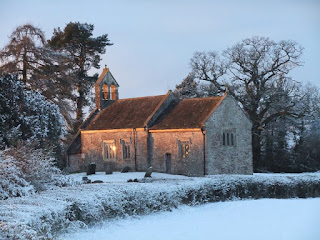'Mutual love and charity': 'The Lord be be you' before the prayers at Matins and Evensong
In the ancient offices the words often denote a transition from one part of the service to another, and in this light they may here be considered. Our consciences absolved from sin by confession, our affections elated with praise and thanksgiving, our understandings enlightened by hearing God's word, and our faith strengthened by a solemn profession, we now enter more particularly upon the business of prayer, and proceed "to ask those things which are requisite and necessary as well for the body, as the soul."
Before we begin to pray, the salutation of the priest reminds the people, that without God's assistance, their services cannot be profitably performed. It is also a seasonable petition that He would graciously be present with them in the offering of the sacrifice of those prayers, which the church has appointed to follow: that he would lift up their hearts, accept their devotions, and reward their services.
The people, remembering that their minister is going to present his supplications, and offer up spiritual sacrifices for them, pray in return, that the same Lord may be graciously present with him, at all times, and especially in the performance of these holy duties. And where the minister and people, with proper dispositions, thus acknowledge their own insufficiency, declare their mutual love and charity, and reciprocally pray for each other, they will assuredly obtain a blessing from God.




Comments
Post a Comment